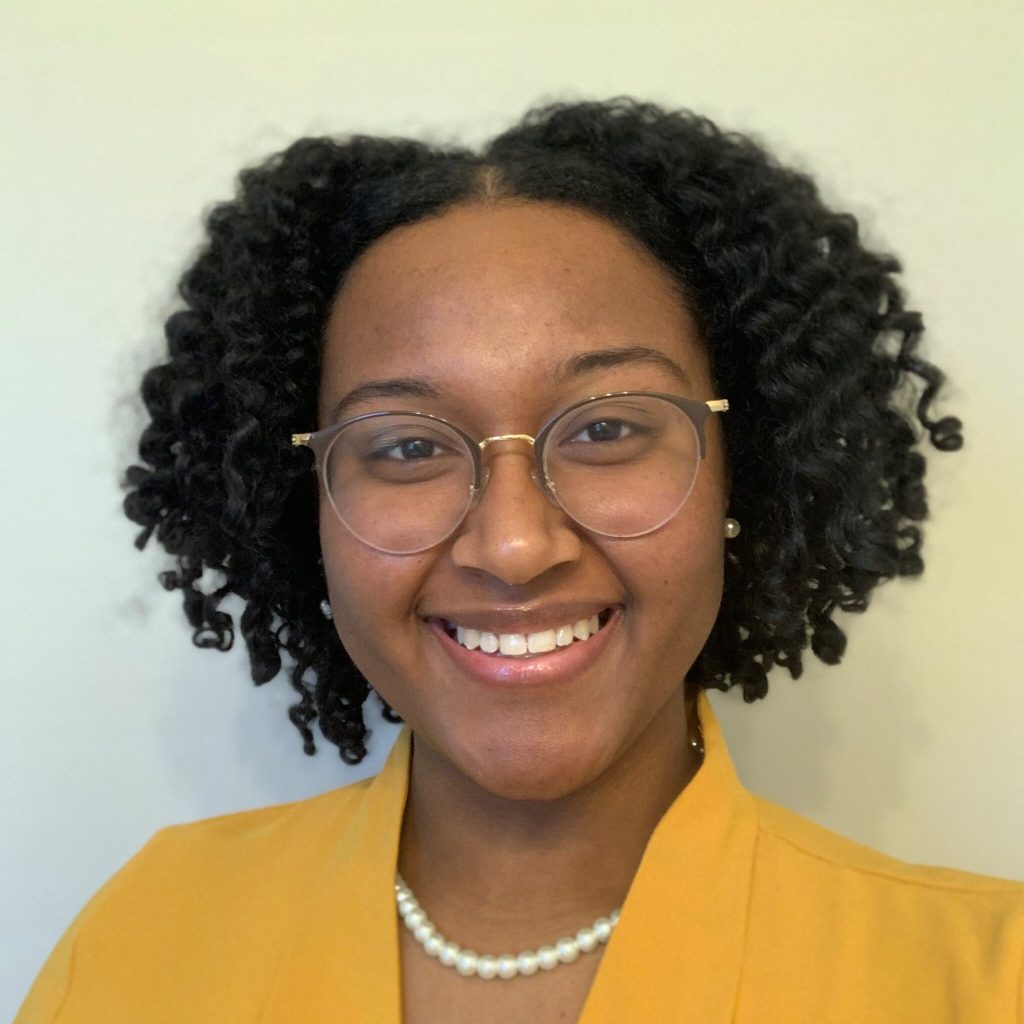Intern Leticia Tuset combines English and environmental public health to change lives through community resilience
January 29, 2021
Leticia Tuset has always harbored a love for English. In fourth grade, she just knew she wanted to be a writer. Now a Morehead-Cain Scholar and junior at UNC-Chapel Hill, Tuset has designed a vigorous academic path pursuing her interests in English, the environment and public health in creative ways that will provide a foundation for a dynamic career. As an intern at the Institute and former participant in IE’s IDEA (Increasing Diversity and Enhancing Academia) Program, a yearlong STEM immersion program for underrepresented high school students, Tuset is gaining experience and putting those skills to the test.
“The more that I’ve studied English and the deeper I’ve gone into it, it really does help give me so many transferable skills, like analysis, problem-solving, critical thinking, communication—all of these really important things that are very hard to teach,” Tuset says. “Thinking about these big, complex issues, in general, that’s what excites me. This is why I gravitate toward English. I also think that is why I am drawn to environmental studies.”
Tuset grew up in Raleigh, the youngest of three children. Her mom always was on the hunt for free and enriching programs for her daughter in the summer. During her sophomore year of high school, Tuset was encouraged by her mom to apply for the IDEA Program at IE. The IDEA program was a yearlong STEM program for underrepresented high school students.
“It was never something I was super passionate about, but my mom was very insistent that I be exposed to all these different kinds of things. So I applied and once I joined, I really, really liked it. I liked being outside and doing the experiments,” she says.
During the program, Tuset enjoyed meeting other students and being outside—but something that stuck with her was canoeing for the first time in Falls Lake.
“To this day, I still like canoeing. I don’t get to do it often, but I do really enjoy it. The weeklong program really left a mark on me,” she says.
Fast forward 5 years and Tuset has found a place to exercise her skills and get training as an intern with Kathleen Gray, director of IE’s Center for Public Engagement with Science (CPES); associate director for Outreach and Public Service; and research associate professor.
Tuset was relieved to hear that Gray saw her English background as an asset.
“I couldn’t have asked for a better fit,” Tuset says. “This really gives me that exposure into the field that in some ways is more valuable than taking classes. You’re actually doing the work with the experts.”
“Leticia has been an incredible addition to our team and has reinforced my belief in the value of interdisciplinary teams. She has shared her deep knowledge of literature and film and her creative writing skills with the participants in our high school resilience project, and she brings fresh eyes and insights to our interview project,” Gray says. “Although she participated in one of our past high school programs, a colleague from NC State re-introduced us, underscoring the benefits of inter-institutional collaboration as well.”
As an intern, Tuset is working on two projects. One track is a study on flood resiliency and the other is assisting with CPES’s Youth Engaged in the Science of Resilience Program also called YES-Resilience. YES-Resilience is a yearlong STEM enrichment program for high school students.
For the flood resiliency study, she interviews local health department and disaster preparedness officials in Eastern North Carolina to learn how they have developed resiliency strategies to flood in the wake of devastating hurricanes such as Matthew and Florence.
Tuset says the experience of interviewing has been an unexpected bonus.
“Doing [interviews has] taught me a lot about professionalism. How do you ask people to be in a research study? Because sometimes that can, in and of itself, sound kind of scary,” she says.
Tuset has gained confidence not only in conducting interviews but analyzing them. Due to the global pandemic, the team is conducting interviews via video conferencing. Tuset also completed Institutional Review Board (IRB) training and now understands the importance of protecting the privacy of participants within a study.
Her other duties fall in the realm of the YES-Resilience project. Tuset is serving as a mentor to the student participants. She works closely with CPES and NC Museum of Natural Sciences staff to plan action project sessions, and half-day academies and help facilitate them over Zoom. She also created a library of various resources for students on climate change, such as movies, documentaries, books, articles and podcasts. Students will create a Google site to post their climate stories, which Tuset helped facilitate.
“This is a great team,” she says. “I feel very much a part of the work and not just like an intern.”
Tuset hopes this experience will guide her next steps after college. Her goal is to work abroad for 1-2 years, and then go to graduate school.
“I tend to oscillate between public health or getting my MFA. Who knows, I might do both,” she quips.
